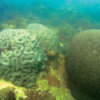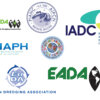The United Nations Environmental Program addresses a broad range of issues, including the health and well-being of coastal areas, estuaries and wetlands.
United Nations Environmental Programme (UNEP)
United Nations Environmental Programme (UNEP) has recognised that almost 50% of the world’s coasts are threatened by development-related activities. The health, well-being and, in some cases, the very survival of coastal populations (about 1 billion people are living in coastal urban centres) depends upon the health and well-being of coastal systems such as estuaries and wetlands.
UNEP Regional Seas Programme
In 1974, the United Nations Environment Programme (UNEP) launched a Regional Seas Programme. The UNEP Regional Seas Programme has emerged over the last 35 years as the prime example of how to craft a regional approach to protecting the environment and managing natural resources. The Regional Seas Conventions and Action Plans cover issues ranging from chemical wastes and coastal development to the conservation of marine animals and ecosystems.
More than 143 countries participate in 13 Regional Seas programmes established under the auspices of UNEP. Seven are independently run:
- Black Sea (Bucharest Convention);
- North-East Pacific (Antigua Convention);
- ROPME Sea Area (Bahrain, Iran, Iraq, Kuwait, Oman, Qatar, Saudi Arabia, United Arab Emirates);
- Red Sea and Gulf of Aden (Jeddah Convention);
- South Asian Seas, South-East Pacific Region; and
- Pacific Region.
Six such programmes are directly administered by UNEP:
- Wider Caribbean (Cartagena Convention);
- East Asian Seas;
- Eastern Africa Region (Nairobi Convention);
- Mediterranean Region (Barcelona Convention);
- NorthWest Pacific Region; and
- Western Africa Region.
There are also independent Regional Seas programmes:
- Arctic Regio;
- Antarctic Region (CCAMLR);
- Baltic Sea (Helsinki Convention);
- Caspian Sea (Tehran Convention); and the North-East Atlantic Region (OSPAR Convention), which covers the NorthEast Atlantic and North Sea. The OSPAR Commission is made up of representatives of the Governments of 15 Contracting Parties and the European Commission, representing the European Union.
UNEP Global Programme of Action (GPA)
In addition, members of UNEP have set up a Global Programme of Action (GPA) for the protection of the Marine Environment from Land-based Activities (1995). The GPA is designed to be a source of conceptual and practical guidance to be drawn upon by national and/or regional authorities for devising and implementing sustained action to prevent, reduce, control and/or eliminate marine degradation from land-based activities.
Subjects
Regulatory Bodies, Agencies, Commissions and Organisations
-
 Conventions
Conventions
-
 IADC Dredging in Figures Committee
IADC Dredging in Figures Committee
-
 Dredging and Related Organisations
Dredging and Related Organisations
-
 Financial Institutes & Lending Agencies
Financial Institutes & Lending Agencies
-
 IADC Sustainability Committee
IADC Sustainability Committee
-
 IADC Indexation Cost Standards Committee
IADC Indexation Cost Standards Committee
-
 IADC Legal Committee
IADC Legal Committee
-
 IADC Public Relations Committee
IADC Public Relations Committee
-
 IADC Registered Plant Committee
IADC Registered Plant Committee
-
 IADC Safety Committee
IADC Safety Committee
-
 United Nations Environmental Programme (UNEP)
United Nations Environmental Programme (UNEP)
related
Publications
Videos
Presentation: ‘Hondsbossche and Pettemer Sea Defence an example of sustainable asset valuation’ by Sven Kramer (Van Oord) − Director Sustainability

This presentation shows the practical implications of taking all externalities into consideration as early as possible in a project procedure. It is complex but asset valuation is gradually becoming more and more feasible for large infrastructure projects. The independent International Institute of Sustainable Development carried out a study on the benefits of “Nature Based” coastal Protection compared to traditional “Grey” solutions. Their report is expected to be published mid-November 2021.
Presentation: ‘There is ”more” in maritime infrastructure‘ by Marc Huygens (DEME) − Environmental Manager

There are opportunities to develop and implement new solutions for maritime infrastructure challenges. In addition to technical-economical values there is a big commitment to create both environmental and social values. To take the industry to the next level it is necessary to attract students and young professionals to the industry to ensure all externalities are taken into consideration from the onset of a project. The “Social Benefits Wheel” is a tool that can help track the degree to which a project or programme is attaining its social development targets and goals.
Presentation: ‘Sand as a Resource’ by Jan Fordeyn (Jan De Nul) − Director Project Development & Conceptual Design

In our day to day lives most of us are not aware of how many industries rely on sand as a part of their working process. The amount of sand consumed has dramatically increased over the last few years and this can be largely contributed to the world wide construction boom. How is this going to affect us in the future?




